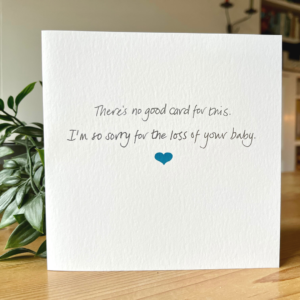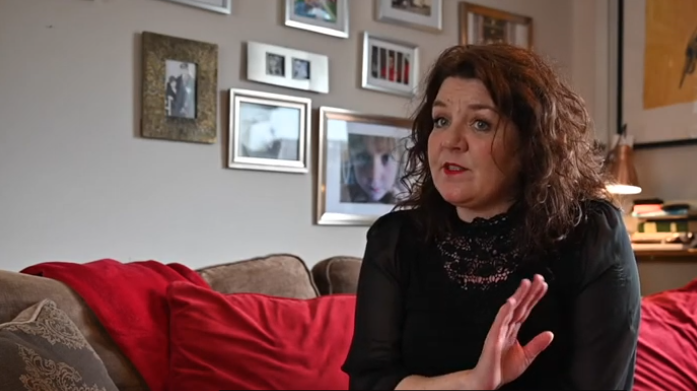Colleagues: information and support
If you are reading this it’s likely that someone you work with has had a miscarriage*, ectopic or molar pregnancy. You may work with the woman who has experienced the physical loss, or with her partner. This information has been written to help you understand more about the support you can offer.
Not everyone feels the same way, but for many people, miscarriage is the loss of a baby, however early in pregnancy it happens.
My colleagues sent flowers and messaged to ask if I was ok. Lots of hugs when I returned. Telling me when they were bringing their baby into work so I could avoid if needed.
* We often use the term ‘miscarriage’ to include miscarriage, ectopic and molar pregnancy.
How are they feeling?
They may be feeling any, or all, of these:
- sad and tearful,
- shocked, especially if there were no signs that anything was wrong,
- angry – it feels so unfair,
- jealous, especially of pregnant women and people with babies,
- guilty, perhaps wondering if they might have caused the miscarriage (it’s very unlikely),
- empty – a physical sense of loss,
- lonely, especially if others don’t understand,
- panicky and out of control,
- negative about themselves,
- acceptance – feeling as if this is not a major event for them, or
- relief – feeling relieved that they are no longer pregnant.
Some people experience panic attacks, flashbacks, nightmares and problems with sleep after their loss. Research[1] has shown that miscarriage and ectopic pregnancy may trigger long-term post-traumatic stress disorder (PTSD).
It’s very common to feel any or all of these at different times. Miscarriage affects people in many different ways so even if you have had a miscarriage yourself, their experience might be quite different.
What else might be happening?
They may be:
- exhausted, possibly bleeding and in pain,
- experiencing huge fluctuations in hormones as their body adjusts,
- feeling they have to put on a brave face,
- worried about telling their manager about the miscarriage in case it affects how they are treated at work,
- feeling uncomfortable acknowledging or talking about such a personal issue with people at work,
- looking for support from you and other colleagues, and/or
- trying to be strong for their partner, but feeling grief about their loss.
They may be off work – but not always. Many people who experience miscarriage return to work reasonably quickly. Some people feel they need longer to recover physically and/or emotionally. Others return to work too quickly and then realise they need more time.
What should I say?
Even if you don’t know someone very well, acknowledging his or her loss and saying how sorry you are can make a big difference.
Have a look at our information on talking about miscarriage in the workplace and our Simply Say page on our website for more ideas about what might help – and what might not.
One colleague simply said “I’m so sorry. I don’t know what to say”. The perfect comment, I could have kissed her.
What can I do?
 Send a card, flowers or something to show that you are thinking of them. You might like to buy a specialist pregnancy loss card such as this one which we developed with Card Factory. You might also like to have a look at our Virtual Hugs. You can download these for free and send as a message on your phone. The Virtual Hugs were created when we were in lockdown during the coronavirus pandemic, with friends and family in mind, but might still feel right for someone you work with.
Send a card, flowers or something to show that you are thinking of them. You might like to buy a specialist pregnancy loss card such as this one which we developed with Card Factory. You might also like to have a look at our Virtual Hugs. You can download these for free and send as a message on your phone. The Virtual Hugs were created when we were in lockdown during the coronavirus pandemic, with friends and family in mind, but might still feel right for someone you work with.
Offer your support. They may need someone to go with them to meetings or to help them get the leave or adjustments they are entitled to.
Be sensitive about what you share. Even quite a long time afterwards people may find it difficult to read or hear pregnancy announcements (for example on social media or in work emails). It isn’t always possible to avoid but it is something to bear in mind. It may help to send them a message first or to talk privately so they can prepare themselves.
Try not to take it personally if they feel the need to avoid you – for example, if you are pregnant. They don’t want to have to avoid you. They are trying to cope with a lot of complicated emotions and probably feel guilty and sad that they can’t be happy for you.
Don’t assume that they are ‘over it’ because they are back at work. Due dates and anniversaries can make thing harder.
If you feel able to, and have experienced something similar, it may help to share all or part of your own story. Remember that their feelings may be different to your own.
Consider mentioning the Miscarriage Association as a source of support and information. We are always happy to help.
There was a baby boom at work, so I was constantly getting emails with pregnancy announcements. It drove me nearly demented.
[1] American Journal of Obstetrics and Gynaecology, DOI: 10.1016/j.ajog.2019.10.102

